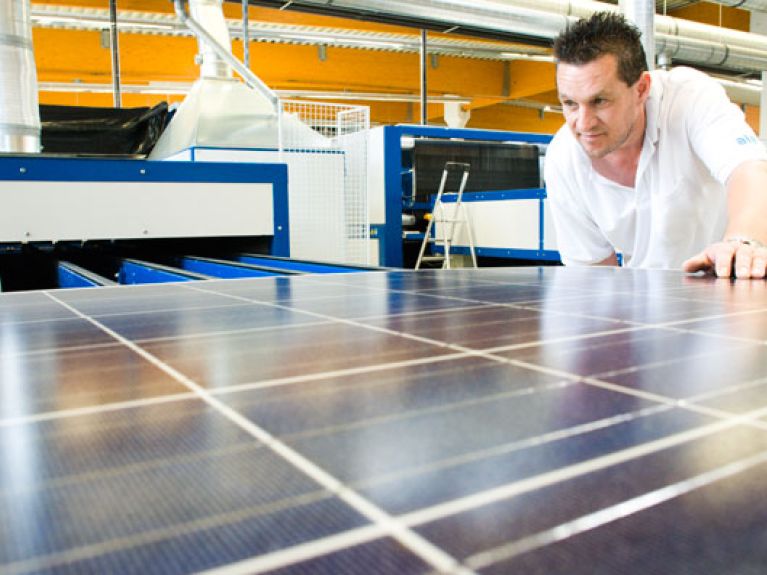Forum for renewable energies
The German-Israeli Renewable Energy Committee brings together market leaders and business start-ups.

Solar energy is the trump card: this is the first impression a visitor gets when travelling through Israel, where most homes have solar water heaters on their roofs. A law introduced in the 1960s means that a record-breaking 95% of hot water is heated using sunlight, and several kibbutzes in the south of the country use solar cells to convert sunlight into electricity.
However, compared to other countries, Israel is lagging behind. The country does indeed have an innovative high-tech sector, but the industrial sector is having difficulty converting solar energy into electricity in a cost-efficient way. Currently not even 2% of Israel’s electricity needs are produced using sunlight, much less than the government’s original goal of 5%. Experts doubt that the new goal of 10% solar energy by 2020 can be achieved. Ophir Pines-Paz, Israel’s former Minister of Internal Affairs and Minister of Science, believes that the reason for this is that Israel got off to a relatively late start. “We did not begin to promote solar energy seriously until about five years ago, because we had other priorities,” says Pines-Paz. The government did not worry about alternative energy sources for a long time. In addition, abundant gas discoveries off Israel’s coast moved the focus away from renewable energies. Furthermore, as strange as it may sound, it is often too hot in Israel. With the same intensity of sunlight, solar installations have less output at a higher temperature.
Israel’s innovative industry has something to offer in the field of solar technology, too, but time and again it is dependent on cooperation with foreign partners – for example, with China or Germany. The German-Israeli Chamber of Industry and Commerce has launched GIREC, the German-Israeli Renewable Energy Committee, as an open forum for interested parties to encourage interchange between Germany and Israel. Pines-Paz is its Chairman. The Committee was established in 2012 with the goal of encouraging business contacts between Israeli and German small and medium-sized enterprises (SMEs) and identifying existing obstacles. In particular, the GIREC network is intended to promote exchange between established market leaders and business start-ups. Meetings are held three or four times a year, generally in conjunction with conferences or trade shows – for example, at Intersolar Europe in Munich in June 2014. There are currently 60 companies involved in the network, one third of them from Germany.
Since the market for renewable energies became more lucrative following Israel’s 2008 law on feed-in tariffs, German companies such as Siemens, Schott Solar and SMA Solar Technology are doing business with Israel. GIREC is there to discuss SMEs’ problems and seek solutions in the German-Israeli solar energy business. In addition, information about market developments and gaps in the market in both countries will be exchanged. Pines-Paz places particular importance on improving energy efficiency in Israel. He says: “Israel can benefit from German know-how and German experience.” Individual local authorities would indeed be very interested in higher energy efficiency, but rarely have the necessary experience. GIREC therefore organizes round-table discussions at which the methodology of the efficiency process is discussed with experts. Pines-Paz would be pleased if the Palestinians would also join the forum. His answer to a question to this effect would be a definite “Yes”. ▪

